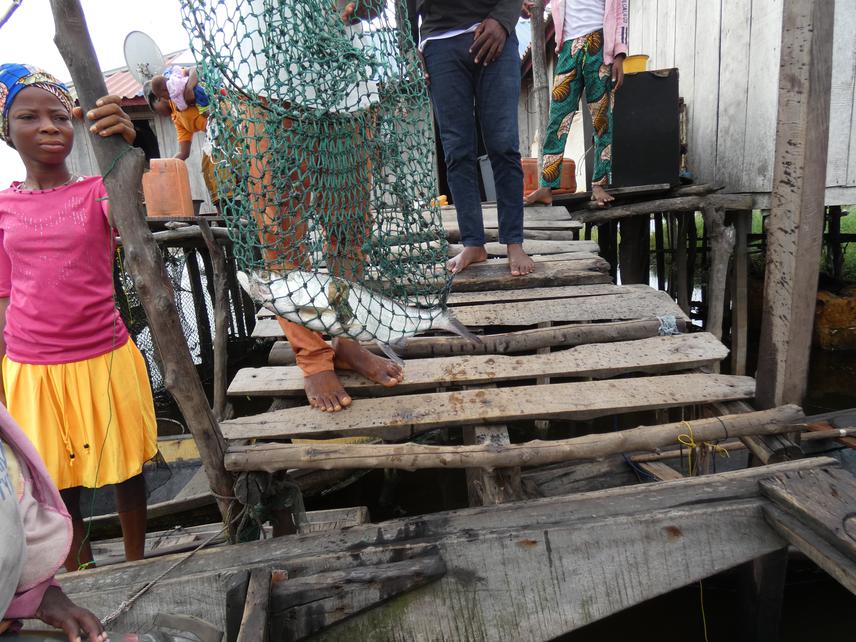Pelebe Edéya Orobiyi Rodrigue
Other projects
31 Mar 2022
Conserving the Red List Threatened Fish Species by Raising Awareness, Strengthening Local Rules and Diversifying Livelihood in Fishing Communities in Benin
The Atlantic Tarpon (Megalops atlanticus) is an economically and ecologically important fish found in coastal and inshore waters of the subtropical and tropical Atlantic Ocean. This diadromous species is listed as Vulnerable in The IUCN Red List of Threatened Species in 2018 mainly due to high fishing pressure and habitat degradation. Spawning takes place offshore; larvae later move into shallow inshore and estuarine areas where the Atlantic Tarpon spends the early part of their lives. In Southern Benin, juveniles of M. atlanticus that migrate from the marine environment into brackish water of Lake Nokoué, the largest brackish water ecosystem in Benin, to accomplish a part of their life history are highly valued and under high exploitation.

A fisherman holds a live specimen of Atlantic Tarpon in a net, caught in his traditional grow-out pen in Ganvié. ©Rodrigue Pelebe (2022).
Our first RSG revealed 64% of actors of the Benin inland fisheries are unaware of the impact of their activities on red-listed fishes in Benin. In addition, the main sources of habitat degradation in inland aquatic ecosystems in Southern Benin are from human activities according to the findings of our first RSG. Unfortunately, for M. atlanticus, we still lack an understanding of the migration routes, the fishing calendar, the quality of juvenile habitats, the used fishing gears and practices since the few existing works on the species in Benin focused on catches and aquaculture potential. This project has mainly been designed to fill this knowledge gap and will be implemented within the Ganvié fishing community in Sô-Ava. Reconnaissance visit, individual surveys, focus group discussions, citizen science approach, awareness creation and capacity building will be used for implementing this project.
Key findings from the project will be used to develop sensitisation materials as well as a technical booklet. Improving the level of awareness of users on the space use and movement of M. atlanticus in Southern Benin and equipping them with best practices for species protection will reduce human-induced impacts and contribute to its sustainable conservation in the short and long terms. This project will avail information that can be used to further design ecosystem-based fisheries management for The Atlantic Tarpon in Southern Benin.
Header: Two specimens of Atlantic Tarpon sampled from Ganvié fish landing for length and weigh measurements. ©Rodrigue Pelebe (2022).